(46151 products available)








































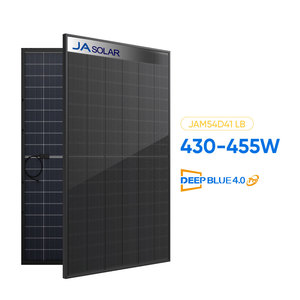
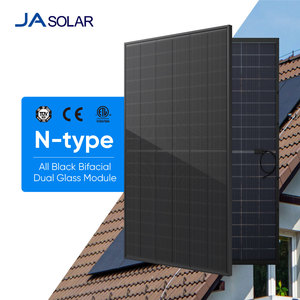
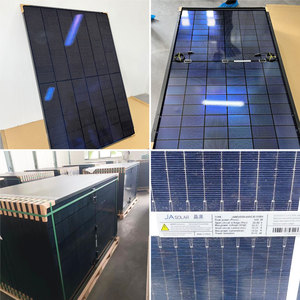

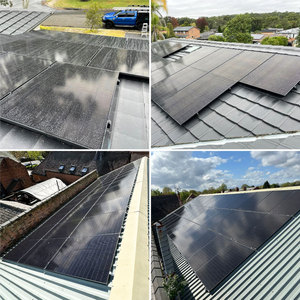
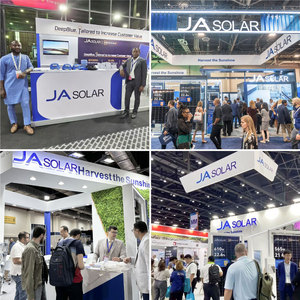







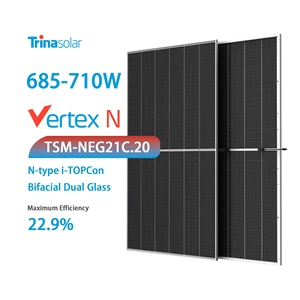
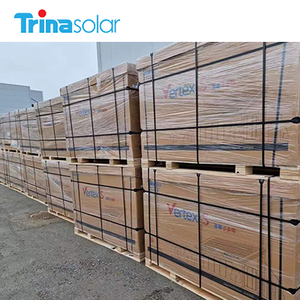


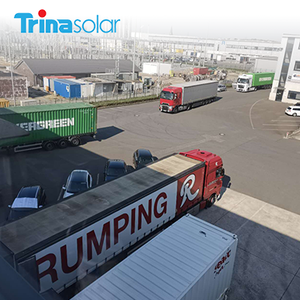




































































































































































PV glass panels, also known as photovoltaic glass panels, are solar panels designed to generate and integrate solar energy into buildings and other structures. These panels come in different types, which are;
Solar Roof Shingles: These BIPV panels are designed to function as roof shingles. They blend in with traditional shingles while generating solar energy.
Solar Facades: These panels are designed to be installed on building facades. They serve double functions: providing architectural aesthetic value and solar energy generation.
Terrace PV Panels: These are BIPV panels designed for flat-roofed buildings. They can be installed on rooftops without additional mounting structures.
Pv glass panels are essential components of photovoltaic solar energy systems. These panels are developed to convert sunlight into electricity through specific functions and features. Here are some of them:
Electricity Generation
PV panels glass are mainly designed to convert solar energy into electrical energy. They are manufactured with semiconductors like silicon. These panels are able to generate electricity when they are exposed to sunlight.
Direct Current (DC) Generation
The photovoltaic panels generate direct current (DC) electricity. This is the type of electricity that is used to flow in a circuit continuously. The electricity generated can be used to power batteries directly. It can also be used to power devices that need DC electricity.
Inverter Compatibility
These PV panels are compatible with inverters. The inverters are important because they convert the direct current (DC) electricity that the panels generate into alternating current (AC). This is important because AC electricity is used by most home appliances. It is also used in power grids.
Grid-Tied Systems
These panels are used in grid-tied systems. These are systems that are connected to the utility power grid. The PV panels supply electricity to homes or businesses when there is sunlight. When there is no sunlight, the homes or businesses rely on the grid. They can also send excess electricity back to the grid.
Off-Grid Systems
PV panels can also be used in off-grid systems. These are systems that are not connected to the utility power grid. The panels charge batteries that store energy for later use. This happens even when the sun is not shining. These systems are mainly used in remote areas.
Net Metering
Some functions of PV glass panels involve net metering. This allows homeowners to get credits for the excess electricity they produce. A special meter tracks the amount of electricity sent to and taken from the grid. This helps to offset future electricity bills.
Durability and Weather Resistance
These panels are designed with strong tempered glass. This glass can resist impacts from debris that is blown by the wind. It can also resist hailstones that hit the panels when it is raining. The glass enables the panels to function well even when there are high winds and heavy snow. The tempered glass panels also last for many years. They provide reliable electricity for a long time.
Efficiency Under Various Conditions
Pv glass panels are able to function under different weather conditions. Some panels are developed to work well in low light or cloudy conditions. Others are designed to reflect heat and work well when it is very sunny.
PV glass panels are used in various industries and applications. Here are some common scenarios where PV panels are applicable:
Building Integrated Photovoltaics (BIPV)
PV glass panels can be integrated into building components such as facades, roofs, and skylights. This creates a more aesthetically pleasing solar solution. BIPV allows the generation of electricity without compromising the structural integrity or design of the building.
Commercial and Residential Rooftops
PV panels are commonly installed on the rooftops of both residential and commercial buildings. They harness solar energy and provide electricity for everyday use. This helps reduce electricity bills and dependence on the grid. Additionally, some municipalities and HOAs have regulations regarding rooftop solar installations that are worth considering.
Solar Farms
PV panels are used in large-scale solar farms where thousands of panels are deployed. These farms are built on open land areas such as deserts and agricultural fields. The solar farms capture sunlight and convert it into electricity that is fed into the grid. This provides renewable energy to power entire communities.
Greenhouses and Agriculture
PV glass panels can be used in greenhouses to promote plant growth while also generating solar energy. These special panels allow for the adequate transmission of light needed for photosynthesis. Additionally, some agrivoltaics systems combine solar panels with traditional agriculture. This dual-use approach maximizes land efficiency and provides farmers with an additional revenue stream.
Parking Lots and Carports
PV panels can be installed on top of parking lot structures and carports. This generates electricity while providing shade for parked vehicles. The electricity can be used on-site or fed into the grid. Additionally, some electric vehicle charging stations are located in shaded areas with solar canopies. These charging stations harness solar energy and store it in the vehicle batteries.
Coastal and Marine Applications
PV panels are used in various marine applications. This includes powering buoys, boats, and offshore platforms. Marine-grade solar panels are specifically designed to withstand harsh, salty environments. They provide a reliable source of electricity in remote locations without dependency on fossil fuels.
When choosing which PV glass panels to purchase for resale, Business buyers should consider the following factors:
Efficiency and Power Output
Business buyers should look for PV panels with higher efficiency ratings. Such panels convert a more significant amount of sunlight into electricity. They should consider the panel's power output. Glass panels with higher watt peak (Wp) ratings will produce more power.
Durability and Warranty
Business buyers should select PV glass panels with robust construction. They should choose panels built with high-quality materials like tempered glass. Such panels are durable and can withstand harsh weather conditions. They should consider panels with a warranty of up to 25 years. The warranty period is an indication of the panel's longevity.
Type of Solar Panel
The business buyer should decide on the type of panel to purchase. There are three main types of solar panels. They include monocrystalline, polycrystalline and thin-film panels. Monocrystalline panels are more efficient but more costly. Polycrystalline panels are less efficient but affordable. Thin-film panels are lightweight and flexible and are suitable for specific applications.
Aesthetics and Design
Depending on the installation location, the business buyer can choose panels based on their aesthetics and design. Monocrystalline panels are more sleek and black than polycrystalline panels. They can be installed on roofs without compromising the roof's appearance.
Cost and Budget
The business buyer should select panels that fit their budget. More efficient panels have a higher cost per watt. Business buyers can compare the long-term savings from higher efficiency panels against the upfront costs. PV panels are a long-term investment, and choosing panels that fit their financial plans is essential.
Q1: What is the difference between tempered and laminated PV glass panels?
A1: Tempered PV glass panels are produced through a toughening process that enhances their strength and makes them shatter into small, non-dangerous pieces. Laminated panels are developed by sticking layers of glass with interlayers, which makes them shatter into large pieces.
Q2: Do PV glass panels block UV rays?
A2: Most PV glass panels can block some UV rays. For instance, clear glass allows UV rays to pass. However, there are special panels designed specifically to reduce UV transmission.
Q3: How is the frame of a PV glass panel made?
A3: The frame can be made of various materials. For instance, aluminum, vinyl, and wood are commonly used. It provides the glass with structural support and insulation.